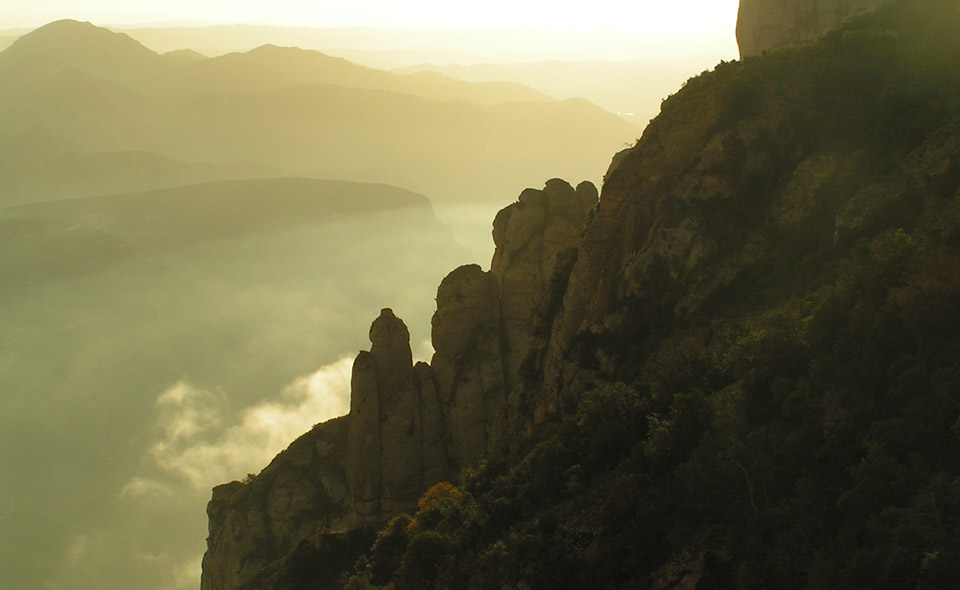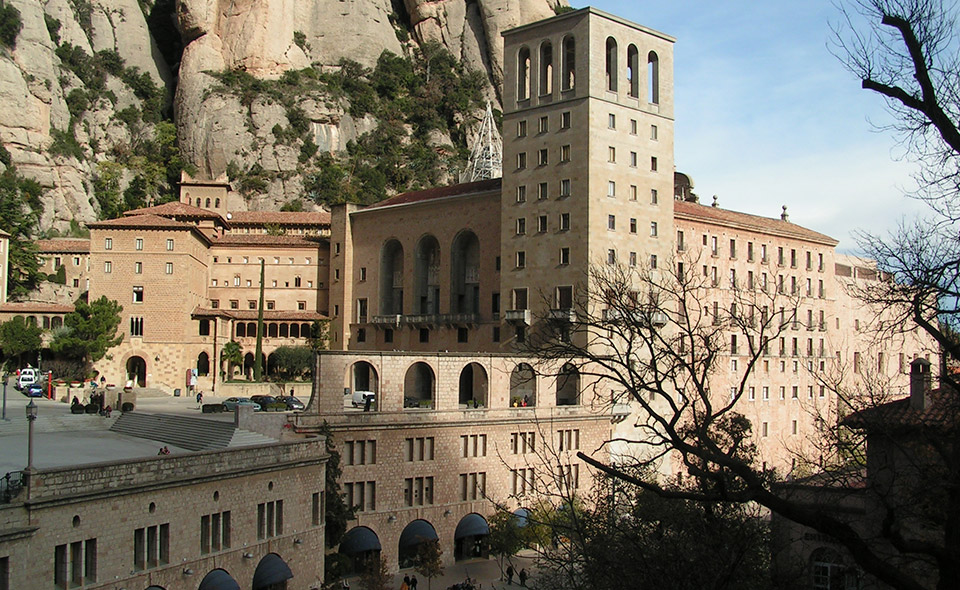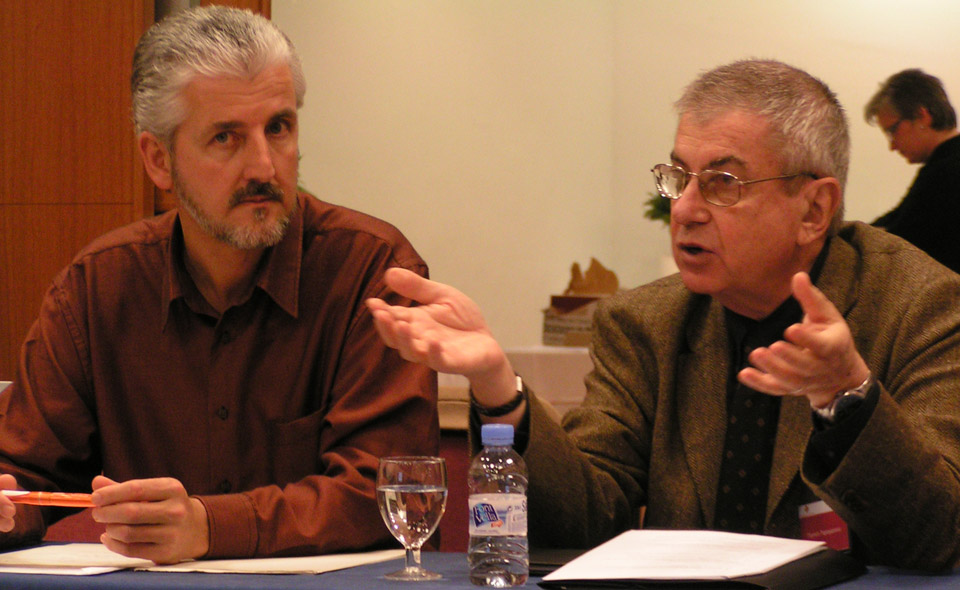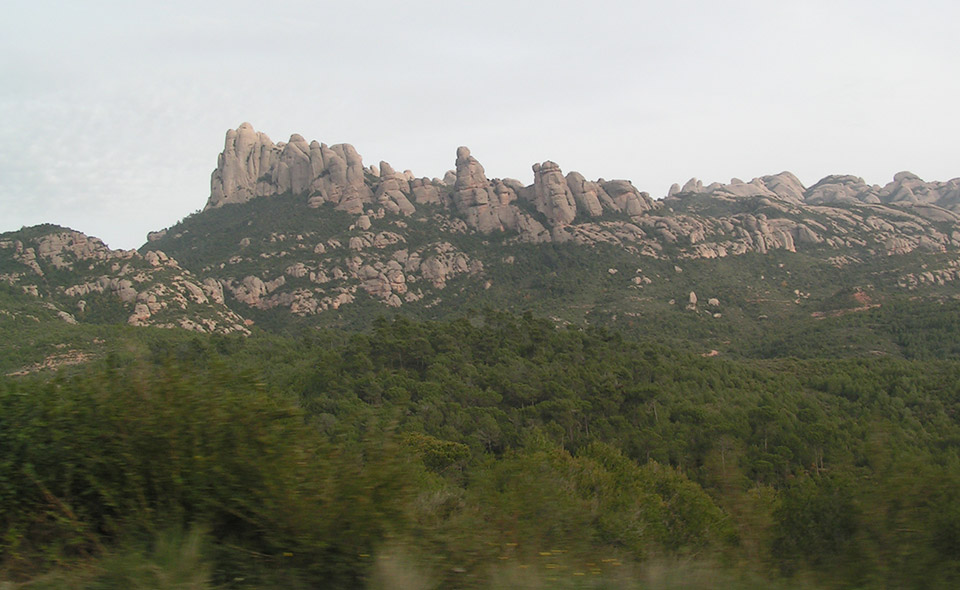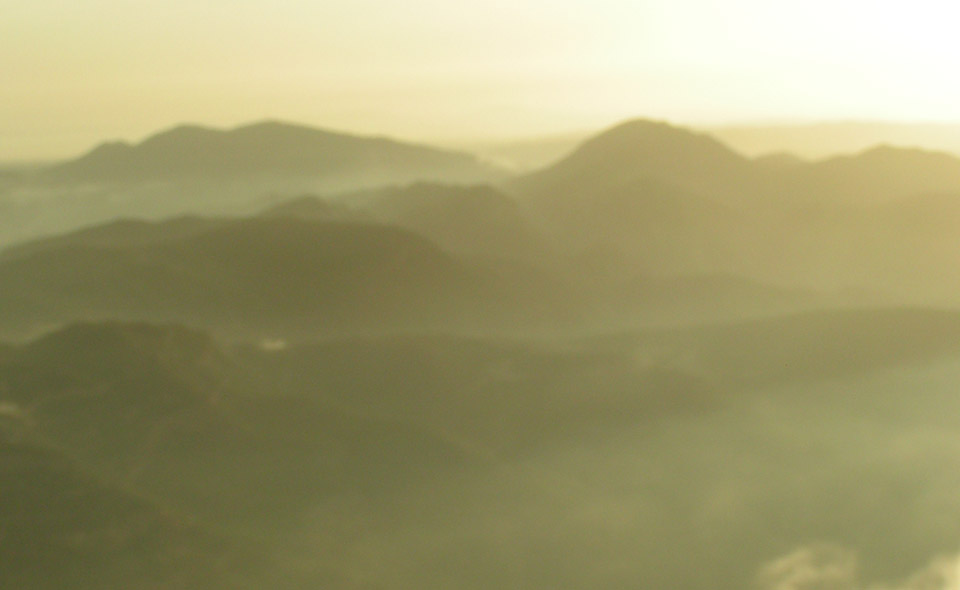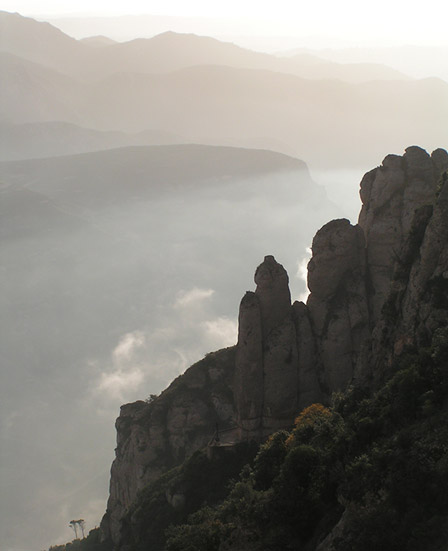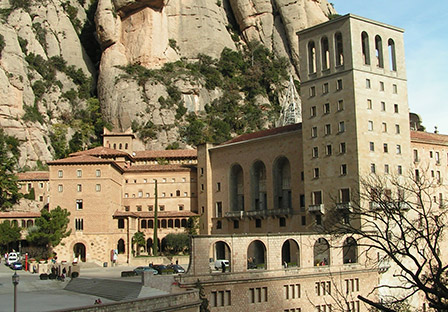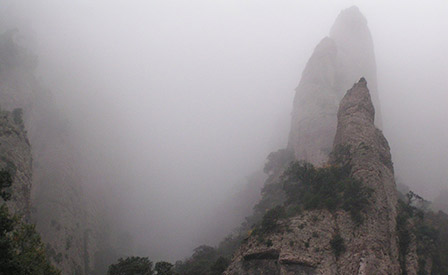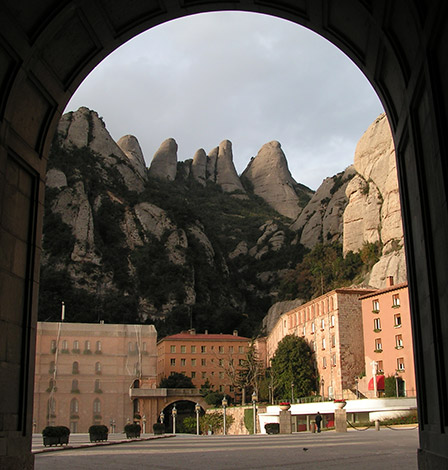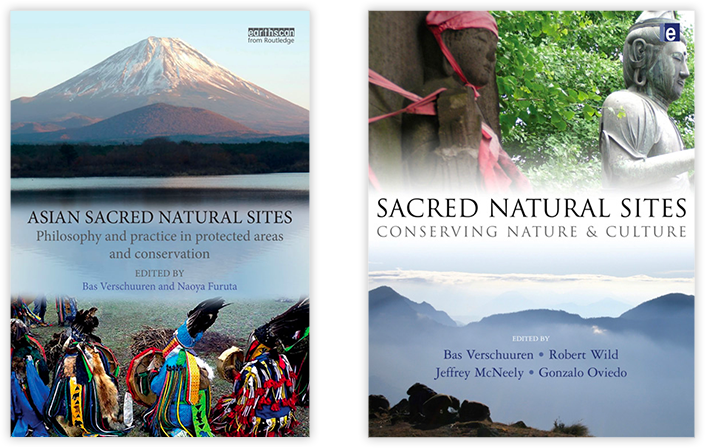Local
Moitos consideran os pináculos rochosos incribles e os mosteiros de Montserrat para o corazón espiritual de Catalunya. Situado dentro do área metropolitana de Barcelona son só 50 km de distancia da cidade, situado nunha zona protexida. A comunidade monástica benedictina local ten tomado coidado de Montserrat, xa que alí se estabeleceron en 1025. Montserat sempre atraeu peregrinos, pero desde os anos 80, Montserrat recibiu un número crecente de visitantes, Estímase en decenas de millóns. Xunto co Consello de Administración da área protexida e municipios, os monxes teñen a traballar para preservar o natural único, valores culturais e relixiosos de Montserrat e protexelo contra as ameazas colocadas pola metrópole en crecemento na veciñanza.
Ameazas
Desprendementos, caídas de pedras, as tormentas e os incendios forestais foron unha ameaza para a flora e a fauna locais ao longo dos tempos e poden empeorar debido ao cambio climático cada vez máis. Desde finais do 1800, a presión turística no lugar aumentou constantemente, e o número de visitantes alcanza agora un total de 3 millóns ao ano. Fóra destes, algúns 2,3 millóns concéntranse arredor do mosteiro de Santa María e afectan seriamente a calma e a tranquilidade da zona monástica.. Nas zonas baixas do monte, a urbanización estase a estender rapidamente e afectando á conectividade ecolóxica e paisaxística coas cordilleiras veciñas.
Visión
Silencio e contemplación debe permanecer central neste sitio natural santo respectado, e os plans de xestión son dirixidos desa forma. Varios concellos están a presionar para aumentar a superficie de solo protexido en forma de parque agrícola nas comarcas baixas da montaña.. Estes desenvolvementos axudarían a protexer o lugar contra a invasión urbana e, sobre todo, tamén contribuirían á paz e a tranquilidade nos baixos olivares..
Acción
En 2006 o primeiro obradoiro da Iniciativa Delos organizouse en Montserrat en cooperación entre a UICN, a Xunta do Parque, o Ministerio de Medio Ambiente de Cataluña e as autoridades monásticas. Intercambiáronse diferentes perspectivas cos principais actores máis a Federación Catalana de Clubs de Sendeirismo e Escalada., xa que os pináculos e paredes de Montserrat tamén son unha zona de escalada moi apreciada. O obradoiro serviu de punto de partida para o desenvolvemento de plans que serven de sinerxías entre os diferentes intereses e valores en xogo en Montserrat..
Política e Dereito
Mentres comezaron os esforzos para declarar Montserrat parque nacional 1902, a propia promulgación polo Parlamento de Cataluña produciuse en 1989, cando foi declarado Parque Natural (Categoría V da UICN) rodeando unha reserva natural (Categoría III da UICN). Ao redor 75 % do espazo protexido pertence ou ben á comunidade monástica ou ao goberno catalán. O resto do parque, principalmente en altitudes máis baixas, é propiedade privada. Todo o parque está incluído na Natura Europea 2000 rede.
Ecoloxía e Biodiversidade
Montserrat ten unha superficie de aproximadamente 45 km² e está formado principalmente por conglomerados de rochas terciarias e areniscas. Aínda que a maioría das pedras están espidas, algunhas están cubertas de vexetación mediterránea, mentres que os bosques de aciñeiras de folla perenne establécense en sitios con suficiente terra. Montserrat é o fogar 1200 taxas de plantas vasculares identificadas, 40 dos cales son raros ou en perigo de extinción, tal como Erodium foetidum, Ramonda myconi e Saxífraga callosa. O sitio está habitado ademais polo vulnerable e raro Ibex español (Cabra española) e a aguia de Bonelli (Aquila vendada).
Custodiantes
O macho comunidade monástica benedictina de Montserrat vive na montaña hai case un milenio. Ao longo dos séculos eremitas ocuparon abrigos illados situados nas zonas máis remotas e moitas veces superiores da formación rochosa. Estableceuse unha comunidade monástica feminina noutra parte da montaña sobre 50 anos. Tanto as comunidades monásticas masculinas como femininas comparten a apreciación polo lugar sagrado e pola comunidade onde veneran valores como o silencio e a contemplación. Describen a montaña santa como un valor relixioso e simbólico e, polo tanto, sempre a mantiveron abertas a peregrinos e outros visitantes. Un dos retos constantes dos monxes é pasar estes valores e ambientes únicos ás xeracións futuras. Para conseguilo, xestionan os equipamentos públicos e a experiencia dos visitantes do lugar ao tempo que adoptan medidas para diminuír o impacto ambiental e cultural nas zonas vulnerables.
Traballando xuntos
Este parque é único no feito de que o consello de administración está presidido polo presidente catalán, mentres que o abade principal do Mosteiro de Santa María serve como vicepresidente. Os monxes monásticos representan a súa comunidade en todos os principais grupos locais. As relacións cos catro concellos da contorna son en xeral complexas pero positivas. Mentres no pasado, houbo conflitos sobre o uso dos recursos, a comunidade monástica agora se engancha nun diálogo significativo cos consellos locais da cidade que axuda a liberar a presión que poden acumular-se en situacións de conflito. A iniciativa privada foi creado pola comunidade monástica en 1912, servindo para xestionar todos os servizos públicos en todo o Mosteiro. Recentemente, o Mosteiro tamén aliado coa Iniciativa Delos da IUCN para afondar e ampliar os esforzos en integrar o patrimonio inmaterial na conservación da natureza.
Ferramentas de conservación
Xestionando os recursos naturais de forma prudente e eficaz, a comunidade monástica mantivo durante moito tempo un alto valor natural en Montserrat. Recentemente implementaron novas ferramentas e enfoques para protexer a natureza circundante. A Xunta do Parque agora apoia aos concellos locais para resistir o crecemento e as presións urbanas. O establecemento estratéxico de camiños para camiñar afasta a atención do público das ermidas que aínda están en uso para retiros espirituais e protexe aos demais do vandalismo..
Resultados
A estreita colaboración cos concellos da contorna provocou a declaración do lugar como Parque Natural (35 km²) e Reserva Natural (17 km²) ademais dunha zona tampón de aproximadamente 42 km²: un primeiro resultado importante na resistencia ao sobrecrecemento urbano no lugar. A comunidade monástica mantén unha forte posición na directiva do Parque.
O primeiro obradoiro da Iniciativa Delos en 2006 resultou nun libro interesante, publicado pola editorial Montserrat, contén unha Declaración que resume as principais conclusións, e tamén información valiosa e amplamente accesible sobre medidas de conservación para Montserrat, así como para varios outros sitios naturais sagrados de países desenvolvidos tecnoloxicamente.
- Mallarach JM e Papayannis T (eds.). 2006. Áreas Protexidas e Espiritualidade. Actas do primeiro Obradoiro da Iniciativa Delos - Montserrat. Publicacións da UICN e Pam. Montserrat.
- Delos Iniciativa: www.med-ina.org/delos/

